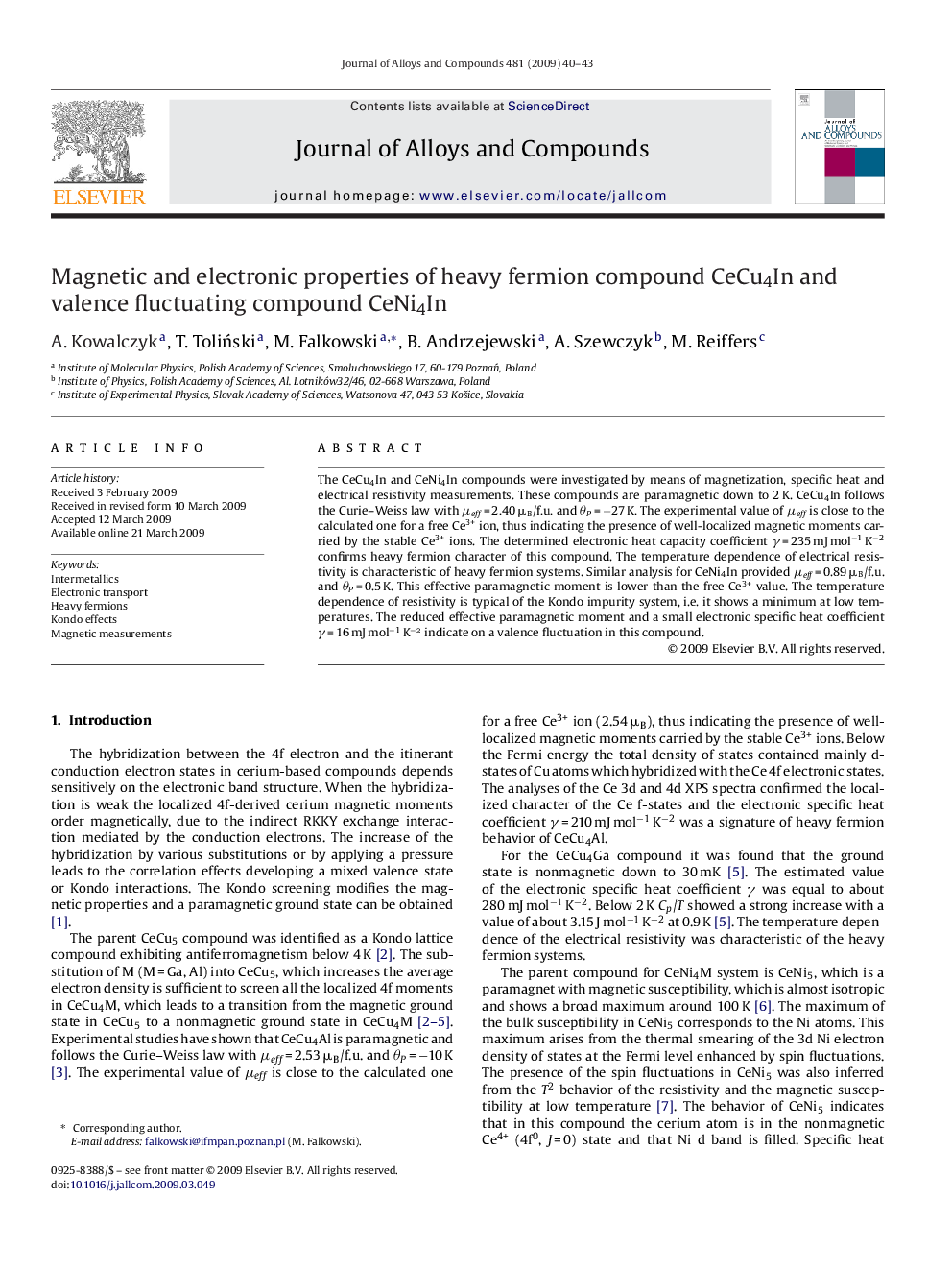| Article ID | Journal | Published Year | Pages | File Type |
|---|---|---|---|---|
| 1621522 | Journal of Alloys and Compounds | 2009 | 4 Pages |
The CeCu4In and CeNi4In compounds were investigated by means of magnetization, specific heat and electrical resistivity measurements. These compounds are paramagnetic down to 2 K. CeCu4In follows the Curie–Weiss law with μeff = 2.40 μB/f.u. and θP = −27 K. The experimental value of μeff is close to the calculated one for a free Ce3+ ion, thus indicating the presence of well-localized magnetic moments carried by the stable Ce3+ ions. The determined electronic heat capacity coefficient γ = 235 mJ mol−1 K−2 confirms heavy fermion character of this compound. The temperature dependence of electrical resistivity is characteristic of heavy fermion systems. Similar analysis for CeNi4In provided μeff = 0.89 μB/f.u. and θP = 0.5 K. This effective paramagnetic moment is lower than the free Ce3+ value. The temperature dependence of resistivity is typical of the Kondo impurity system, i.e. it shows a minimum at low temperatures. The reduced effective paramagnetic moment and a small electronic specific heat coefficient γ = 16 mJ mol−1 K−2 indicate on a valence fluctuation in this compound.
